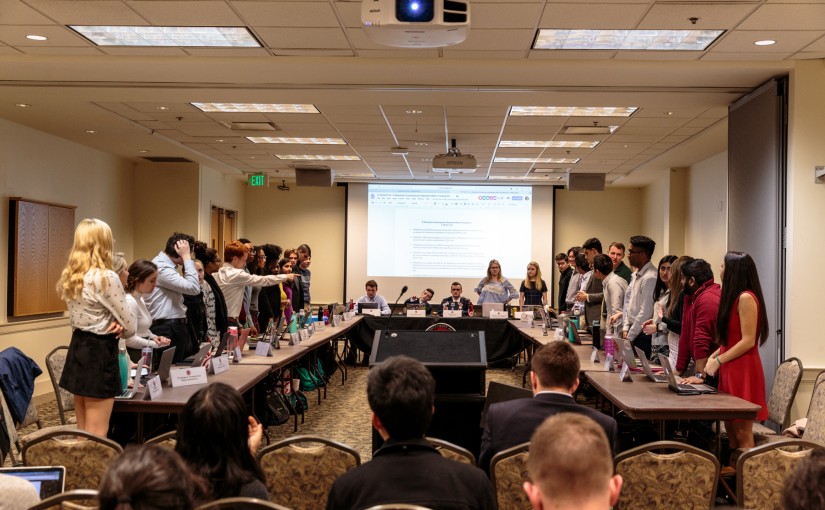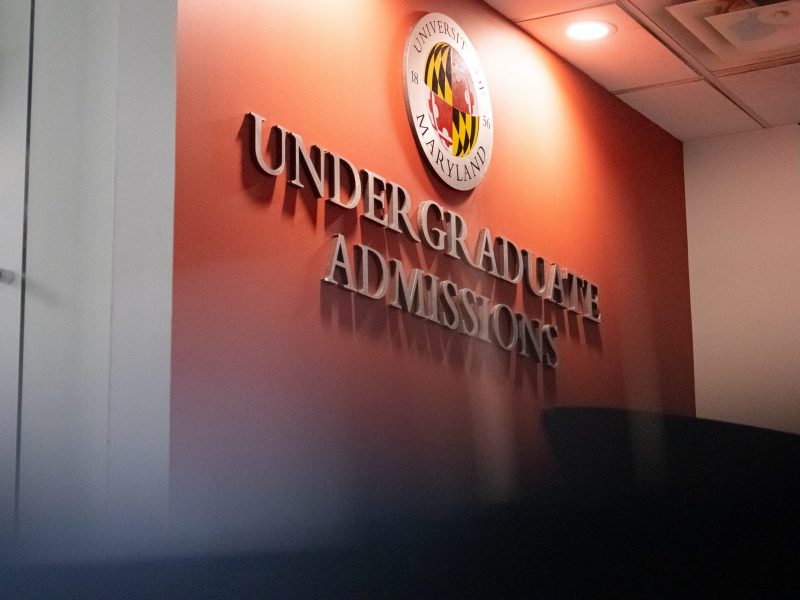The University of Maryland’s SGA passed an act on Wednesday to support state-level bills aimed at preventing sexual assault and conversion therapy, as well as funding Metro repairs.
The two bills regarding sexual assault address preventing it in the state legislature and institutions of higher education.
Mihir Khetarpal, the Student Government Association’s governmental affairs director, said the campus sexual assault bill was written to hold universities accountable for dutifully investigating sexual misconduct accusations.
[Read more: UMD SGA discusses possible program reducing student Metro fares]
“My understanding is that currently, the university is already meeting all [the bill’s] requirements,” Khetarpal, a senior economics and government and politics major, said. “It’s just a safeguard if the Trump administration says, ‘You have no requirements, you can do whatever you want,’ to make sure that the universities continue to do it.”
Khetarpal said the other bill regarding sexual assault, aimed at the state legislature, would ensure that sexual assault investigations would be independent of survivors’ employers.
“It would affect us because we have interns [in Annapolis],” Khetarpal said. “Frankly, a lot of our graduates or recent graduates, within one or two or three years, go on to work there. … This stuff happens more than you’d ever imagine.”
[Read more: SGA urges UMD to continue charging in-state tuition for DACA recipients]
The SGA also supported the state establishing a dedicated continued funding of WMATA.
Mitchell Wilson, the arts and humanities representative, said the bill to prevent doctors from using conversion therapy on LGBT youth would help students attending this university in the future.
“We felt that we needed to take a stance on it because students who experience that type of trauma as minors are more likely, in our view, to show mental health issues later in college” said Wilson, a senior English major. “Coping with the trauma of conversion therapy isn’t something we want any student to have to go through.”
The SGA followed up their meeting with a working session from the committee on constitution and bylaws, whose proposals will be voted on by the entire general body in its final meeting of the year. In this meeting, the attending legislators reviewed cutting and adding certain representative positions.
The committee discussed removing the SGA’s residential representatives.
“I really don’t think we should expand the legislature,” said Adam Hemmeter, an economics and materials sciences and engineering major. “People are already represented multiple times over … there is so much representation for every student on campus.”
As the system stands, students are represented based on their dorm location and major, and there are additional representatives for certain programs, like Freshman Connection.
The committee showed general support for changing the current Greek Housing representative to a more general Greek Life representative, to better speak for students in sororities and fraternities that don’t live in specific Greek houses. Leah Barteldes, a junior government and politics and public policy major, recommended the amendment.
“The Greek community is big enough, and has enough of its own issues, that it needs its own representative,” Barteldes said.
The committee also explored the idea of adding two multicultural representatives to better focus on issues of diversity and inclusion. The SGA currently has a diversity and inclusion committee, but Barteldes said the fact this isn’t any legislator’s sole purpose prevents them from focusing all their attention on multicultural initiatives.
Other legislators said the SGA should defer to encouraging diversity among the general body, to avoid “tokenizing” multicultural representatives.
“That’s something we should all be taking up as a collective,” Wilson said. “Everyone should be equally as involved.”



